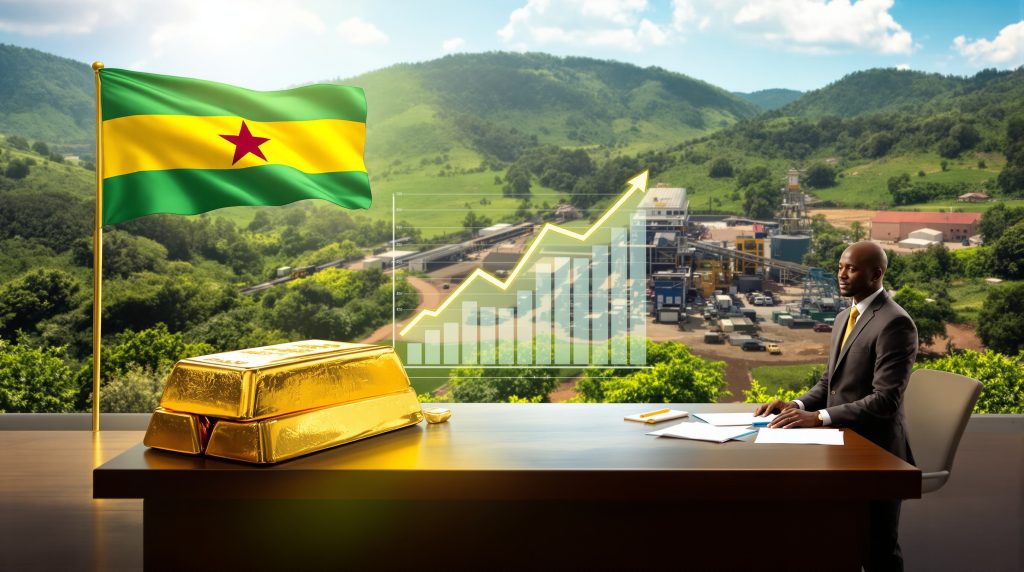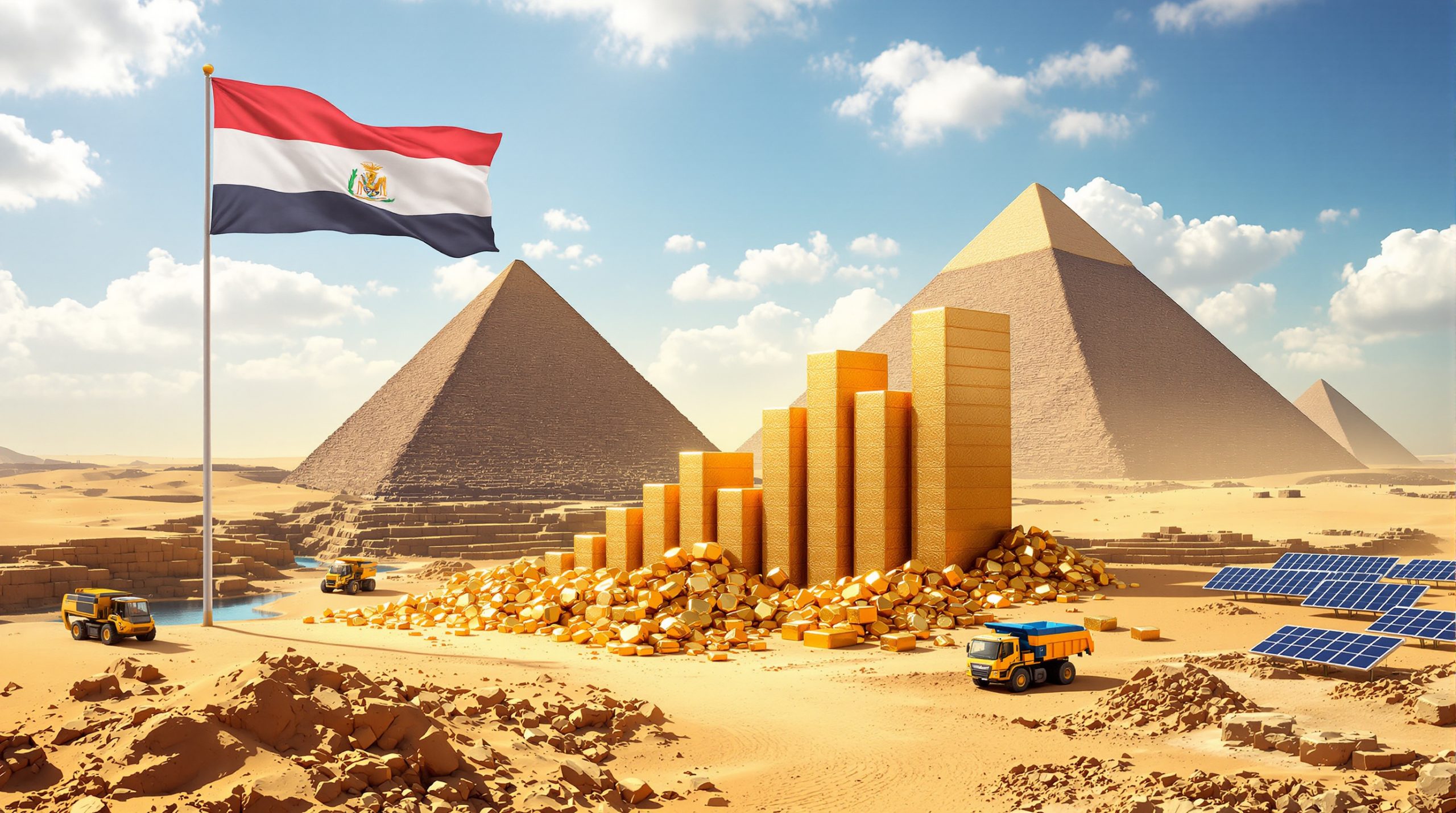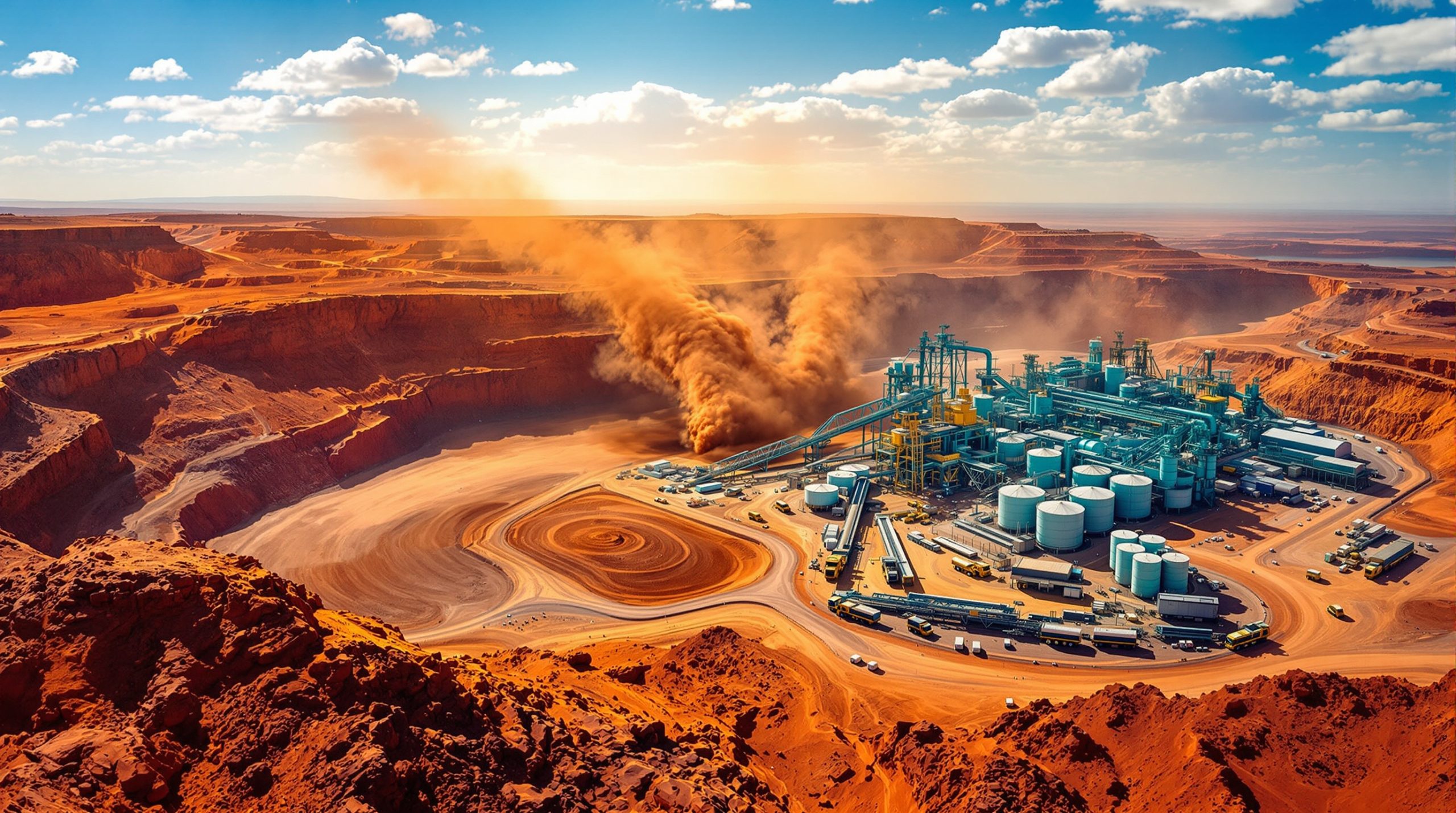Ghana's Investment Climate: Navigating the Azumah Resources Dispute
Ghana's mining sector has long been a cornerstone of the West African nation's economy, attracting significant foreign investment due to its rich mineral resources. However, recent developments involving the Black Volta gold project have raised questions about the country's investment climate. This dispute between Azumah Resources and local contractor Engineers & Planners has become a focal point for discussions about Ghana's approach to foreign investment and resource nationalism.
The Current State of Ghana's Mining Investment Environment
Ghana remains one of Africa's leading gold producers, with a well-established mining code and decades of operational history. The country hosts operations from major mining companies including AngloGold Ashanti, Gold Fields, and Newmont, demonstrating its continued importance as a mining jurisdiction. Despite recent challenges, Ghana continues to attract exploration interest due to its geological potential and experienced workforce.
According to the Ghana Chamber of Mines, mining contributes approximately 5% of Ghana's GDP and over 40% of total merchandise exports, with gold being the dominant mineral export. Between 2017-2022, Ghana attracted $3.3 billion in mining sector foreign direct investment, highlighting its historical significance as an investment destination.
What Is the Black Volta Gold Project Dispute?
Project Background and Potential
The Black Volta gold project represents a significant potential development in Ghana's Upper West Region. With projected production of approximately 138,000 ounces annually over a 12-year mine life, the project has completed feasibility studies and secured necessary approvals after investments exceeding $100 million in development work.
At current gold price record highs, the project could generate more than $1 billion in net present value, bringing substantial economic benefits to one of Ghana's less-developed regions through employment, skills development, and tax revenues.
The Legal Standoff Explained
The dispute centers on a contractual disagreement between Azumah Resources and Engineers & Planners (E&P), a Ghanaian mining contractor. The conflict began in 2023 when Azumah terminated an agreement with E&P, leading to litigation that has effectively frozen project development.
According to public statements from Ibaera Capital, the major shareholder in Azumah, the dispute has already cost Ghana an estimated $721 million in lost economic benefits, including delayed tax revenues, royalties, and employment opportunities.
This legal standoff has effectively halted what was described as a "build-ready" gold development project that had cleared all regulatory hurdles and was positioned to begin construction. The project had already completed comprehensive feasibility studies and secured the necessary permits to proceed.
How Has the Ghanaian Government Responded?
Minister's Defense of Investment Climate
Ghana's Lands and Natural Resources Minister Armah-Kofi Buah has actively worked to reassure international investors about the stability as a mining jurisdiction. Speaking at the Africa Down Under conference in Perth, Buah emphasized that the Azumah dispute represents an isolated case that the government is committed to addressing.
"In my presentation, I was very clear about the number of companies operating happily in Ghana. I talked about the ten largest companies, five of which are active in Ghana, including Australian companies," Buah stated, highlighting the broader context of successful mining operations in the country.
Government Mediation Efforts
The minister revealed that upon taking office in 2025, one of his first actions was to reach out to the parties involved, expressing the government's commitment to resolving the dispute. This proactive approach suggests recognition at the ministerial level of the importance of maintaining investor confidence.
Minister Buah has characterized the dispute as "an isolated case" that the government is working to address, signaling an understanding of the potential broader implications for Ghana's investment reputation if left unresolved.
What Are the Broader Policy Concerns for Investors?
Resource Nationalism Trends
The dispute occurs against a backdrop of evolving resource nationalism across West Africa. According to industry participants at the Africa Down Under conference, several countries in the region have implemented new mining codes focused on greater regulatory control, increased taxes, and enhanced local content requirements.
This regional trend reflects a growing emphasis on ensuring that host nations capture more value from their natural resources, a development that mining companies must navigate while still delivering returns to their shareholders.
Specific Policy Shifts in Ghana
Ibaera Capital partner James Wallbank highlighted several policy developments that have created uncertainty for international investors:
-
Requirements for mines to outsource operations to majority Ghanaian-owned contractors
-
Proposals from the Minerals Commission to reduce mining lease terms from 30 to 15 years
-
Suggestions that international arbitration could be replaced by local courts for dispute resolution
While acknowledging that these policies aim to maximize local benefits—a goal widely supported internationally—Wallbank expressed concern about their cumulative impact on investor confidence.
These policy shifts, while intended to increase local participation and value retention within Ghana, have created what Wallbank described as "uncertainty for investors" and "a deteriorating investor appetite for Ghana."
What's at Stake for Ghana's Mining Future?
Economic Impact of the Dispute
The stalled development of the Black Volta project represents a significant opportunity cost for Ghana's economy. Beyond the immediate loss of construction jobs and economic activity, the prolonged dispute sends signals to other potential investors about the risks of operating in the country.
With gold market performance at historically strong levels, the delay in developing this project means Ghana is missing a prime opportunity to capitalize on favorable market conditions. The estimated $721 million in lost economic benefits represents a substantial impact for a developing economy.
Regional Development Implications
For Ghana's Upper West Region, one of the country's less developed areas, the project represents a transformative economic opportunity. As Wallbank noted, the mine could become "the factory of the future for this region… a major employment and skills development centre for the northwest of Ghana."
The Upper West Region has traditionally lagged behind other parts of Ghana in economic development, making the potential benefits of a major mining operation particularly significant for local communities. These benefits include:
- Direct employment opportunities for local workers
- Skills development and training programs
- Indirect employment through local suppliers and service providers
- Infrastructure improvements
- Community development initiatives
How Does Ghana Compare to Other African Mining Jurisdictions?
Competitive Position in Africa
Ghana has historically been viewed as one of Africa's more stable and investor-friendly mining jurisdictions, with a longer history of democratic governance and mining code development than many of its neighbors. However, the current halted mining dispute and policy shifts occur as other African nations actively compete for mining investment.
Countries such as Côte d'Ivoire, Tanzania, and the Democratic Republic of Congo have all made efforts to attract mining investment, creating a competitive landscape where policy certainty and investment protections become key differentiators.
Balancing Local Benefit and Investment Attraction
The fundamental challenge facing Ghana—and many resource-rich nations—is how to maximize local economic benefits while maintaining an attractive environment for the international capital needed to develop large-scale mining projects.
As Wallbank observed: "There is no question over the widespread international support for governments having the objective of maximising local benefit. There is nobody that is talking against that position. But the challenge is how is that achieved? How do you achieve that, and can you maintain the balance to ensure that it doesn't create upset in the broader marketplace?"
This balancing act requires careful policy calibration to ensure that local content requirements and benefit-sharing mechanisms don't create barriers to investment that ultimately reduce the overall economic impact of mining development.
What Steps Could Strengthen Ghana's Investment Climate?
Dispute Resolution Mechanisms
Strengthening and clarifying dispute resolution pathways could help Ghana maintain investor confidence while pursuing legitimate policy objectives around local content and benefit-sharing. This includes maintaining access to international arbitration while also improving domestic legal processes.
International investors typically seek the security of neutral dispute resolution mechanisms, particularly for large-scale investments. Ghana's ability to provide this certainty, whether through international arbitration or improved domestic legal processes, will be a key factor in attracting future mining investment.
Policy Stability and Transparency
Investors typically seek predictability in regulatory environments. Clear communication about policy objectives, implementation timelines, and grandfathering provisions for existing investments could help Ghana navigate its resource nationalism objectives while minimizing negative impacts on investment flows.
Potential improvements could include:
- Consultation processes that involve industry stakeholders before policy implementation
- Phase-in periods for new regulatory requirements
- Clarity around the application of new rules to existing projects
- Transparent and consistent enforcement of regulations
- Regular communication with the investment community about policy directions
Finding Balance in Ghana's Mining Future
The Black Volta dispute highlights the delicate balance resource-rich nations must strike between maximizing local economic benefits and maintaining an attractive investment climate. While Ghana's government has affirmed its commitment to resolving the current impasse, the broader industry evolution trends around local participation, lease terms, and dispute resolution will continue to shape investor perceptions.
For Ghana to maintain its position as a leading African mining destination, finding this balance—ensuring both meaningful local economic participation and the regulatory stability international investors require—will be essential. The resolution of the Azumah dispute may provide important signals about how successfully Ghana can navigate these competing priorities.
Potential Path Forward
A successful resolution might include:
- Clear and transparent dispute resolution for the current Azumah/E&P case
- Policy clarification regarding local content requirements and their implementation
- Maintaining investor protections, including access to international arbitration
- Developing innovative partnership models that increase local participation while preserving investment attractiveness
Ghana's Mining Investment Climate: Key Facts
Mining's Economic Importance
- GDP contribution: Approximately 5% of Ghana's GDP
- Export importance: Over 40% of total merchandise exports
- FDI attraction: $3.3 billion in mining sector investment (2017-2022)
- Gold production ranking: Among top 10 global producers, often Africa's largest
Major Operating Mines
- AngloGold Ashanti's Obuasi mine
- Gold Fields' Tarkwa and Damang operations
- Newmont's Ahafo and Akyem mines
- Perseus Mining's Edikan operation
Black Volta Project Specifics
- Location: Upper West Region
- Production potential: 138,000 ounces annually
- Mine life: 12 years
- Investment to date: Over $100 million
- Potential NPV: Over $1 billion at current gold prices
- Economic impact loss: $721 million in estimated lost benefits
Policy Developments Under Discussion
- Contractor ownership requirements
- Mining lease term reductions (30 to 15 years)
- Dispute resolution mechanism changes
Moving Forward: Balancing Priorities
The resolution of the Black Volta dispute will be watched closely by the international mining community as an indicator of Ghana's investment climate Azumah dispute handling approach. Minister Buah's proactive stance suggests recognition of the importance of maintaining investor confidence while pursuing legitimate policy objectives.
As the new government that took office in 2025 continues to develop its approach to mining sector governance, finding the right balance between local benefit maximization and investment attraction will be crucial to the sector's long-term success and contribution to Ghana's economic development. Furthermore, improved mineral beneficiation insights from other African nations could provide valuable lessons for Ghana's policymakers as they navigate these complex issues.
Disclaimer: This article contains forward-looking statements and projections regarding the potential economic impact of mining projects and policy developments. Such projections are subject to various risks and uncertainties, including commodity price fluctuations, regulatory changes, and operational challenges. Readers should consider these factors when evaluating the information presented.
Want to Invest in the Next Major Mineral Discovery?
Discover significant ASX mineral announcements the moment they happen with Discovery Alert's proprietary Discovery IQ model, turning complex data into actionable investment opportunities. Understand why historic discoveries can generate substantial returns by visiting Discovery Alert's dedicated discoveries page and begin your 30-day free trial today to position yourself ahead of the market.




